Taipei Songshan Airport (TSA)
China Japan Flight Cuts Disrupt December Trips
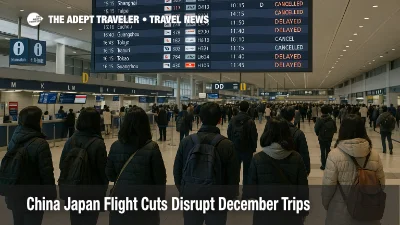
Taiwan Halts Domestic Flights as Taiwan Taoyuang Nears
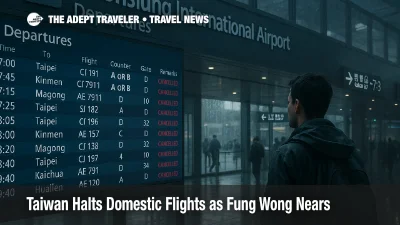
Taiwan Cancels All Domestic Flights For Wednesday
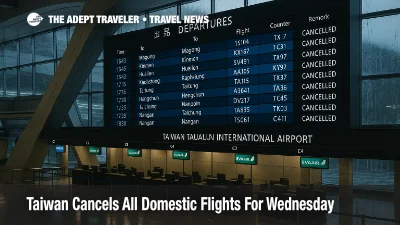
Taiwan Land Warning, Midweek Travel Disruptions Likely
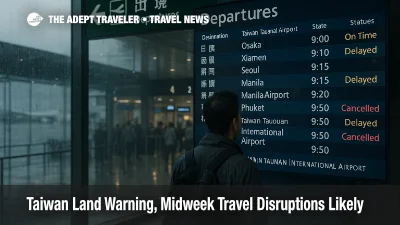
Taiwan Issues Sea Warning As Fung Wong Nears
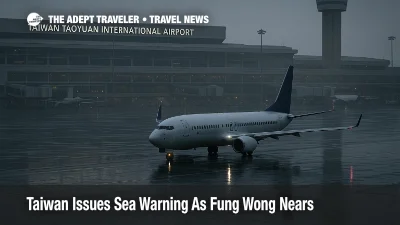
Fung Wong Disrupts Flights and Ferries, Taiwan Warnings Next
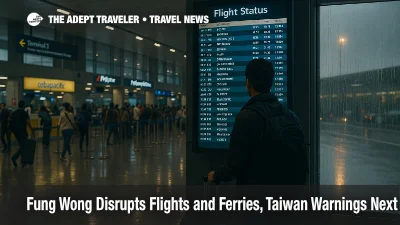
Super Typhoon Ragasa slams Luzon, upends regional travel

